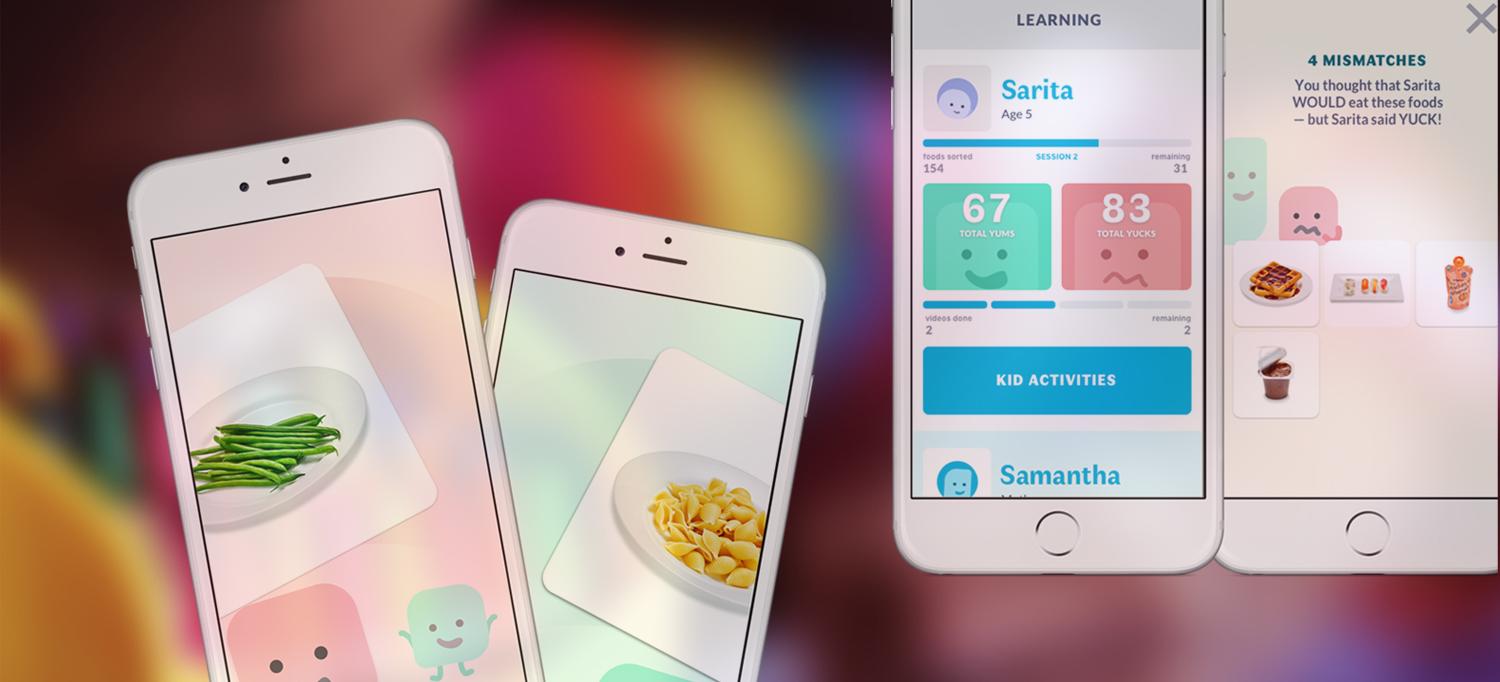
The When to Wonder: Picky Eating app offers families insights about their children’s emotions and behaviors.
Researchers at NYU Langone are developing a series of mobile applications designed to help parents understand their young children’s challenging emotions and behaviors, learn strategies to support their children’s mental health, and know when to seek clinical help.
Led by Helen L. Egger, MD, the Arnold Simon Professor of Child and Adolescent Psychiatry and chair of the Department of Child and Adolescent Psychiatry, the team released its first mobile health (mHealth) tool in December 2018—the When to Wonder: Picky Eating app. This tool employs questionnaires, games, and video facial recognition technology to gather data about children’s food preferences and emotions around eating. The app compares a child’s behaviors with others in his or her age range and offers parents evidence-based advice, suggestions on how to address eating and feeding challenges, and information about how to find help.
The app was developed by the department’s new WonderLab, an initiative co-led by Dr. Egger and Timothy L. Verduin, PhD, clinical assistant professor of child and adolescent psychiatry and director of technology and innovation. The lab brings together specialists in children’s mental health, experts from Medical Center Information Technology (MCIT), and outside technology partners. Future products in the When to Wonder series, all of which will be available as free downloads from the App Store® and Google Play™, will address tantrums, anxiety, and sleep problems.
In addition to providing parents with insights into their children’s emotions and behaviors, which can be shared with healthcare providers, the When to Wonder platform serves as a tool for investigating early childhood mental health and challenges at the population level. In collaboration with the Department of Population Health, the WonderLab continually works to establish best practices regarding ethics, privacy, and security in child mental health delivery and digital innovation. The anonymized, securely stored data enable researchers to examine the epidemiology of children’s emotions and behaviors across the developmental spectrum, as well as the impact of sociodemographic characteristics, parent–child interactions, and other risk factors.
The app itself will be studied for feasibility and efficacy on an ongoing basis. “We’re working to create digital tools that are well designed, functional, scalable, and fun to use,” says Dr. Egger. “Our goal is to bring mental health resources into people’s homes, particularly in underserved areas, and to engage families in research that can improve treatment for children around the world.”

